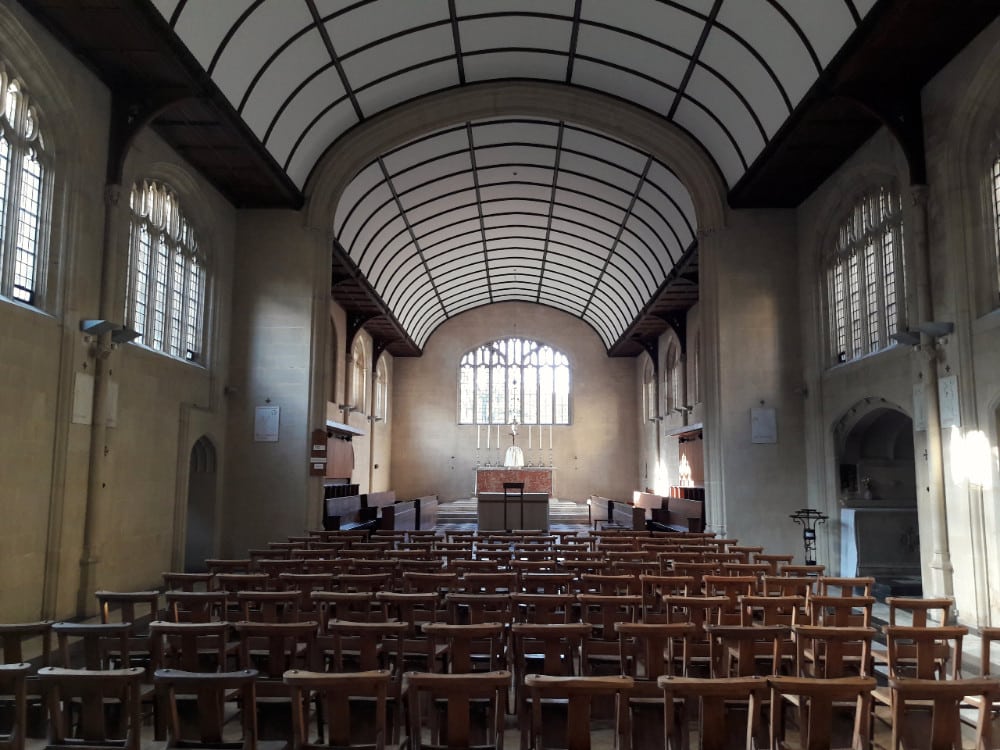Catholic colleges and universities have reinvigorated options for students to study abroad in the wake of the COVID-19 pandemic that literally shut down the world in 2020 and 2021.
Hundreds of students with good grades and stellar reputations as scholars on their campuses are again spending a semester or a full year abroad from Italy to England, Mexico to Portugal, Costa Rica to Thailand, and dozens of other locations.
“The goal is cultural emergence,” said Kamryn Moore, education abroad coordinator in the International Services Department at Saint Louis University in Missouri.
Moore studied abroad when she was an undergraduate. She studied international human rights in Thailand, Costa Rica and Ecuador, so she knows firsthand the benefits of “exploring interests that would not have been available” on a student’s home campus.
Read more Spring College stories here.
Saint Louis University has some 800 students studying abroad, including 10 to 12 each semester in England in a program operated by Fordham University at Black Friars Hall at Oxford University.
“Our students majoring in theology, philosophy and history explore their interests in an in-depth way through their courses and excursions,” Moore told Our Sunday Visitor. “Cultural emergence was good for me.”
A deepening of faith
Cultural emergence benefited Justin T. Andries, a Providence College senior due to graduate in May — one of a number of Providence students who studied in England and created an individual major to accommodate his academic interests when he went abroad.
As a freshman, Andries majored in biology, but his interests expanded into Black Studies over his subsequent academic years. He created Global Health Equity as his major through the fourth semester of the Development of Western Civilization Program, which consists of a team-taught, four-credit colloquium. Building upon the first three semesters, the advanced colloquium settles on a specific, contemporary issue in the context of Western civilization.
Colloquia extends the interdisciplinary approach beyond the humanities to relate western history and culture to histories and cultures beyond the west.
“Being in a different country, I was comparing other health care systems to the United States healthcare system and looking for ways that both could improve,” Andries told Our Sunday Visitor.
He found that pursuing his Catholic faith in England by attending Mass in various churches and seeing religious works of art, from stained glass windows to architecture to statuary, changed his perspective.
“I got a little closer to God as I opened my eyes to how big the world is,” he said.
Christian Wilwohl, dean of Global Education at Providence College, told Our Sunday Visitor, “The second semester Western Civilization study in London has played an integral role in the Western Civilization program. It is an ideal location to go and explore how London contributed from the Age of Exploration to current times.”
“It is interesting for students to get another perspective that can help them strengthen their faith and spirituality.”
Finding confidence abroad
Julia Zgurzynski, now a senior, left the Providence, Rhode Island, campus for her junior year abroad in England to explore her major through the school’s highly regarded Western Civilization program.
“I love English literature, Victorian literature and poetry,” she told Our Sunday Visitor. “One of the coolest museums that I visited a few times had preserved the Victorian period in its rooms.”
Zgurzynski said the experience abroad “helped me feel more confident about going to new places.” She is applying to master’s degree programs in Europe in philosophy with a goal of eventually earning a doctorate of philosophy from a European university.
“Studying in England definitely strengthened my faith by attending Mass with other students from other countries and going to Mass in various churches and seeing differences in other churches,” she said.
With 13 Providence students in London now, the program is looking strong, Wilwohl said.
“We held an information session (recently) and 25 students attended,” he said.
Hannah Bechtold, international programs coordinator at Aquinas College in Grand Rapids, Michigan, said the school’s study abroad program “has struggled to return to its pre-pandemic operations.” The school does have several students abroad now and offers shorter study abroad opportunities this spring.
Currently, 12 Aquinas students are studying abroad — mostly in Ireland, but also in France and Argentina. “We also have two short-term trips happening in May (one to Ireland, one to Sweden and Finland) which students still have time to sign up for.”
The England study abroad program is sought after by Aquinas students.
“We partner with St. Mary’s University (Twickenham, London) to provide a semester-long study abroad program for students,” Bechtold told Our Sunday Visitor. “Our students appreciate taking courses that apply to their general education or elective credits in a setting where they can be abroad but also understand the language.
“While some of our other study abroad programs offer internship opportunities, most of the students who hope to go next fall mentioned the internship component as one of the main reasons they were interested in going to England. Students seem to be thinking more about their future careers and taking steps that will either set them apart or provide them with a unique perspective. Studying abroad is a good way to do both and is part of our college’s vision to prepare the whole person to lead a life of purpose and success in service to a just and sustainable world.”
Joseph R. LaPlante writes from Rhode Island.





